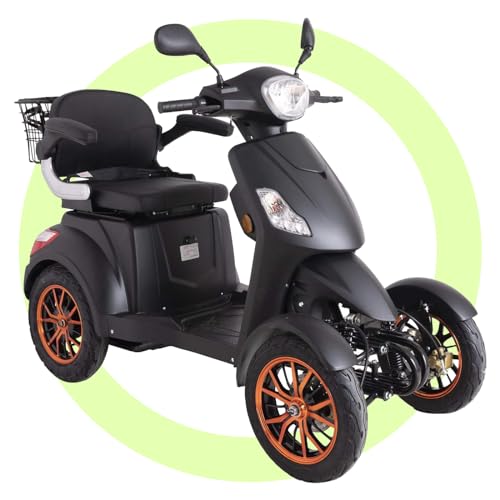Watch Out: What Personal Transportation Is Taking Over And How To Stop It

What Is Personal Transportation?
Private transportation is the use or private transportation vehicles. This can include cars as well as bikes, scooters and unicycles. It could also refer to the use of public transportation systems.
Private transport can help you save time and help you get to your destination. Plus, private transport is more comfortable and provides privacy that isn't available on public transport.
Cost
Many families find that the cost of personal transport is a major expense. This can make it difficult for them to invest or save money in other areas. Fuel can be an expensive expense. There are electric mobility scooters for seniors to reduce your expenses for transportation.
Despite these advantages however, some people prefer private transport for their commutes. They believe that it is the most comfortable and convenient method of getting around. Some people prefer traveling with their own chauffeur. This kind of transportation can be more expensive than public transport, but it offers greater security and comfort.
As EVs benefit from advances in battery technology as well as charging infrastructure and other areas the future of personal transport is likely to be electric. EVs are also more accessible and will emit less carbon dioxide than traditional vehicles. This makes it easier to switch from gasoline to EVs. This will decrease GHG emissions, as well as traffic congestion.
The benefits of public transport are numerous and can be a great alternative to private transport. Compared to private vehicles public transportation is more affordable and is more eco-friendly. It is also easy to use and comes with cameras to ensure passengers security. Additionally, it can help users avoid paying maintenance and parking fees. The major drawback of public transport is that it is sometimes slow and unpredictable. It can also be difficult to travel with children or elderly people. This can cause delays and missed appointments with doctors.
Time
The time it takes to complete a personal transportation task can have a negative impact on people's lives. For instance, commuting to work can take too much time for those with busy schedules. The option of carpooling, working from home or in close proximity to their workplaces can help reduce the amount of time they spend on commuting. You can also cut down on time by walking or riding bikes instead of driving.

The advancement of new technologies could transform the field of personal transportation. This includes electric vehicles equipped with solid-state batteries that provide longer ranges and faster charging times. These technologies also enhance safety and lower traffic congestion through optimised traffic management. Another important improvement is autonomous vehicles that can offer more comfortable and convenient travel experience. They can even help individuals maintain their fitness by keeping them moving.
Privacy
Privacy is an essential element of personal transportation. People who are concerned about privacy prefer to drive or ride in their own cars, instead of taking public transport where they are sharing space with strangers. Public transport is also viewed as less secure, which can affect personal safety. This is especially relevant for older individuals who are more likely to be concerned about their security.
The lack of privacy could be a major issue for travelers with children. Sharing the same space with other passengers can be a stressful experience for children, and could result in behavioral issues like aggression and hyperactivity. Parents are increasingly opting for private transportation in order to ensure their children's privacy. This helps reduce the stress of travelling with children as well as the time spent in commuting. This could help reduce the cost of childcare.
Convenience
Personal transportation is an integral part of everyday life. However the decision you make could affect your health and well-being. It is essential to consider the pros and cons of each choice before deciding on the method of travel best fits your needs.
A few people prefer public transportation which is generally less expensive than private transportation and requires less maintenance. It also has a less impact on the environment as it emits less carbon dioxide per person. It also helps you reduce your fuel and parking costs, and have more flexibility and convenience during your daily commute.
Public transport is not always reliable and comes with a number of risks. You could be at risk of being a victim of crime or not be able to reach your destination on time due to weather or mechanical problems. Additionally, many bus and train routes are jammed making it difficult to move around and relax.
On the other hand, private transport is a fantastic way to travel in comfort and privacy. It is usually much more efficient than public transportation and you can avoid crowds when you travel in a private car. It is also more convenient to travel in the private vehicle instead of one that you drive because you can select your preferred route.
Despite these benefits, the majority of people choose to make cars their primary mode of transport. This can be because they are more comfortable or due to their more resale value. In the future we could see an enormous change in the personal transport system, as electric vehicles (EVs) become more affordable and easy to charge.
In a recent study researchers at MIT looked into what factors influence people's choices for modal transportation. The researchers discovered that safety is a major factor however, it's not a major influence on the modal choice. The most important factors are availability, speed and cost. This is in line with previous studies on modal selection and is likely to continue in the near future. Additionally, a brand new battery technology that makes use of solid state batteries could further enhance the efficiency of EVs and allow them to travel further with the same amount of power.
